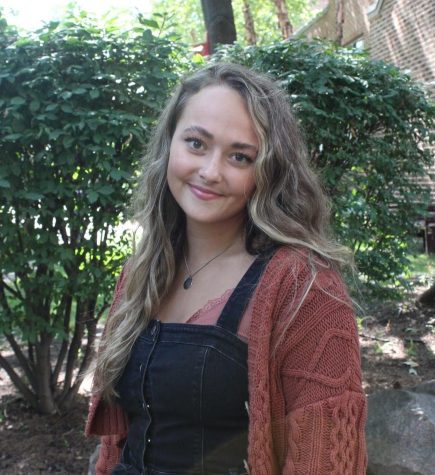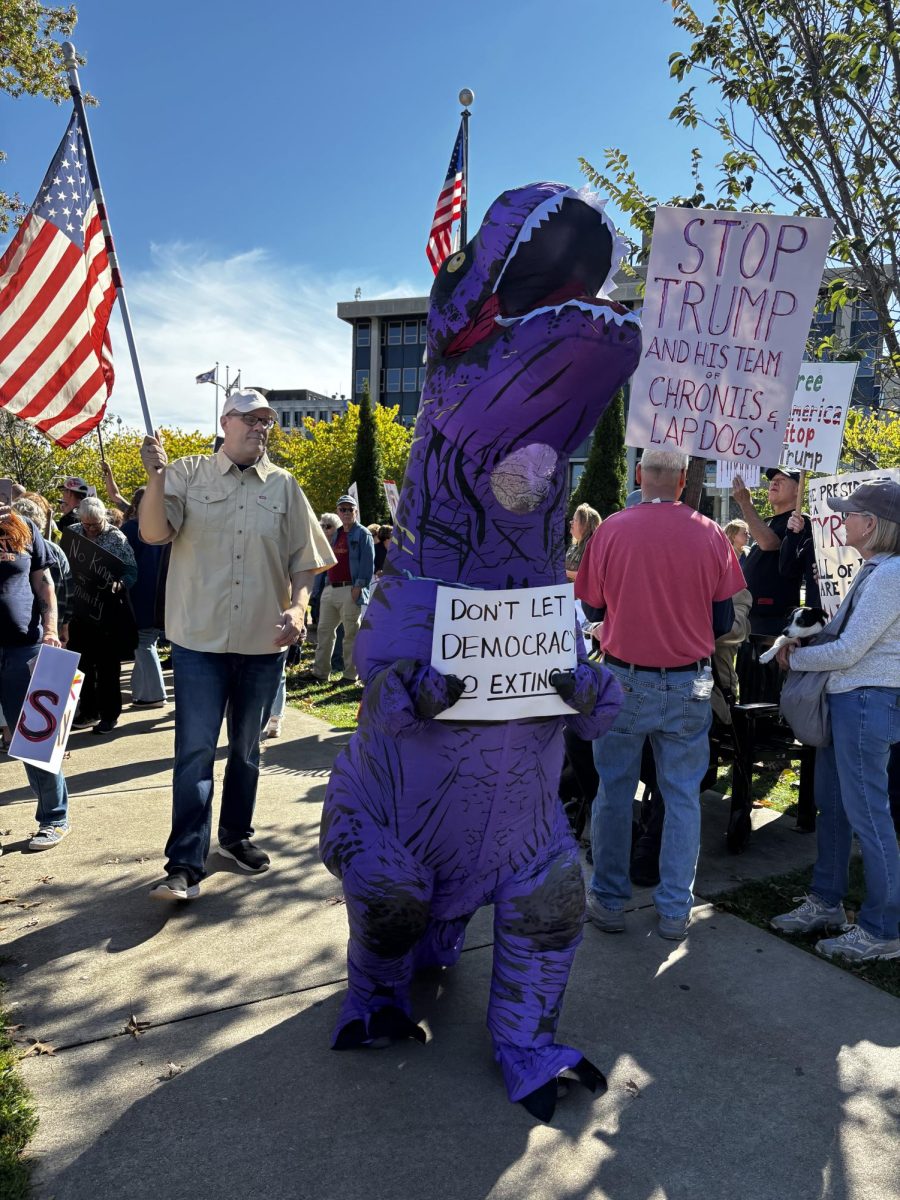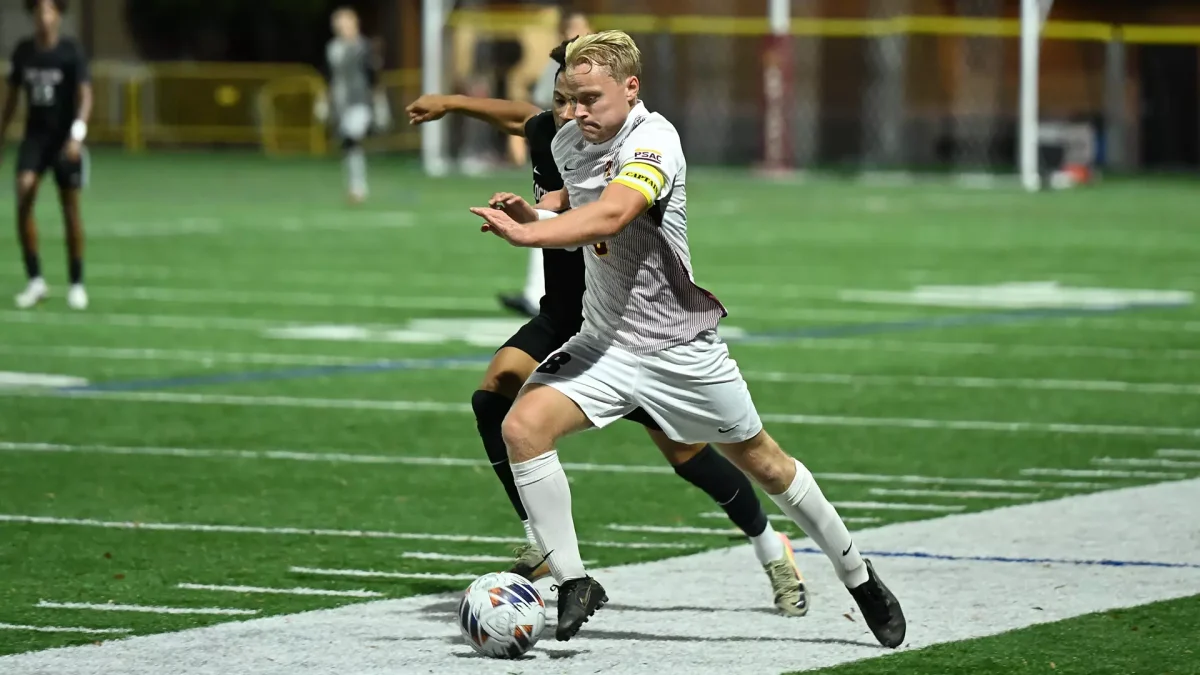Netflix’s limited series one of its most successful
‘Maid’ brings attention to domestic violence through new show
October 26, 2021
Just in time for Domestic Violence Awareness month, Netflix released an original limited series titled “Maid” to its platform on Oct. 1.
According to Forbes Magazine, “Maid” is becoming Netflix’s most successful limited series, as it remains No. 4 in the U.S. nearly a month after its release.
This can be attributed to its relevance, as 10 million people are domestically abused per year according to the National Center of Biotechnology Information.
The miniseries was first a memoir by Stephanie Land called “Maid: Hard Work, Low Pay, and a Mother’s Will to Survive.”
The series follows a young mother, Alex, played by Margaret Qualley, who perfectly embodies the waif-like character who eventually evolves into a lioness as a byproduct of her situation.
From the jump, the show places the viewer on Alex’s side, and almost at her defense, as viewers are able to recognize the signs of abuse better than she can, especially as it is portrayed through the story.
For the most part, Alex is primarily emotionally abused by her partner, Sean. However, the last straw for her is when his violence becomes physical, as he slams her against the wall of their trailer and throws a glass at her head, with their young toddler Maddy present.
Throughout the show, we learn why this was the breaking point for Alex, and why she would rather be homeless than to allow her daughter to grow up in the same toxic cycle as she did.
This brings Alex’s mother, Paula, played fantastically by Andie MacDowell, into the conversation.
An element about the show that shocked me was that Paula, or MacDowell, is actually Alex’s mother in real life
As an undiagnosed bipolar artist, Paula too has been in a constant cycle of abuse, as she clings to men and relationships for stability and grounding.
In the series, we learn that Alex’s father, Hank, played by “Twilight’s” Billy Burke, had hit her mother, which is why Paula and Alex fled to Alaska when she was young. This was also the root of Alex’s estranged father-daughter relationship.
From this point forward, the viewer learns of the other men in Paula’s life, and during the show, she is financially abused by her younger partner Basil, who rents out Paula’s home and in turn takes everything she has.
Financial abuse is defined by the Office on Women’s Health as “when an abuser takes control of finances to prevent the other person from leaving and to maintain power in a relationship. An abuser may take control of all the money, withhold it, and conceal financial information from the victim. Financial abuse happens often in physically abusive relationships.”
For these reasons related to her upbringing, Alex is gaslighted not only by her abuser and his family, but by her own family, as they tell her that emotional abuse is not a form of domestic abuse because there are no marks, bruises or proof.
This ideology contributes to the difficulties surrounding Alex’s custody battle for full custody of their daughter Maddy. Because she can’t file a restraining order or any legal protective measures against her ex, Sean for an “invisible” abuse.
And because she receives no support from her family, no one can pay witness to her abuse, as they continually gaslight her.
It is not until Alex’s social worker suggests she find refuge at a domestic violence shelter that Alex finally feels validated in terms of her abuse. This reassurance primarily comes from the other women at the shelter and Denise, played by BJ Harrison, who is the manager and backbone of the domestic violence shelter.
Through the mode of group therapy sessions, survivor testimonials and workshops, Alex is able to heal, and the conversations surrounding domestic abuse are normalized for the viewers.
What is also destigmatized by the series and the story it tells is going back to an abuser.
Denise tells Alex that on average, a domestic violence victim goes back to their abuser seven times.
Alex watches one of her close friends from the shelter go back to her abuser, who nearly strangled her to death, for a third time.
It took Denise five tries.
What will it take for Alex? You will have to watch the series to learn for yourself.
First and foremost, though, as revealed by the name of the series, it takes a tremendous amount of struggle, cleaning of toilets for the rich for menial pay and courage, which Alex finds through writing about her experiences.
Although the show is titled “Maid,” her occupation is just background noise to her abuse, her journey and her fight for freedom from her abuser.
To watch Alex’s story unfold, and come to a close, as this is a limited series, check it out on Netflix.






